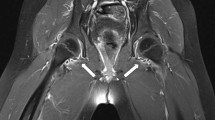Abstract
Rituximab (RTX) has been used to treat B cell lineage lymphoma/leukemia or autoimmune or autoinflammatory disorders. RTX therapy has been extensively applied to cases of frequently relapsing nephrotic syndrome (FRNS) and steroid-dependent nephrotic syndrome. Rituximab-induced serum sickness (RISS) has been recognized as a rare severe type-3 hypersensitivity reaction in patients treated with RTX. We herein report a 10-year-old girl with RISS in FRNS. She was diagnosed with RISS based on characteristic symptoms, such as a fever, rash, arthritis, or proteinuria, during RTX therapy associated with a high level of human anti-chimeric antibody. Even after recovering from acute symptoms by RISS, she suffered from worsening relapses of nephrotic syndrome. The symptoms of RISS are non-specific, resembling viral infections, autoinflammatory diseases and Kawasaki disease, especially in children. While RISS is a rare complication among patients with nephrotic syndrome, it should be carefully considered as a severe complication in patients being treated with RTX.


Similar content being viewed by others
References
Iijima K, Sako M, Nozu K, Mori R, Tuchida N, Kamei K, et al. Rituximab for childhood-onset, complicated, frequently relapsing nephrotic syndrome or steroid-dependent nephrotic syndrome: a multicentre, double-blind, randomised, placebo-controlled trial. Lancet. 2014;384(9950):1273–81. https://doi.org/10.1016/s0140-6736(14)60541-9.
Takura T, Takei T, Nitta K. Cost-effectiveness of administering rituximab for steroid-dependent nephrotic syndrome and frequently relapsing nephrotic syndrome: a preliminary study in Japan. Sci Rep. 2017;7: 46036. https://doi.org/10.1038/srep46036.
Karmacharya P, Poudel DR, Pathak R, Donato AA, Ghimire S, Giri S, et al. Rituximab-induced serum sickness: a systematic review. Semin Arthritis Rheum. 2015;45(3):334–40. https://doi.org/10.1016/j.semarthrit.2015.06.014.
Finger E, Scheinberg M. Development of serum sickness-like symptoms after rituximab infusion in two patients with severe hypergammaglobulinemia. J Clin Rheumatol. 2007;13(2):94–5. https://doi.org/10.1097/01.rhu.0000262585.18582.1e.
D’Arcy CA, Mannik M, MD University of Washington Seattle, WA. Serum sickness secondary to treatment with the murine-human chimeric antibody IDEC-C2B8 (rituximab). Arthritis Rheum. 2001;44:1717–8. https://doi.org/10.1002/1529-0131(200107)44:7%3c1717::AID-ART299%3e3.0.CO;2-C.
Lawley TJ, Bielory L, Gascon P, Yancey KB, Young NS, Frank MM. A prospective clinical and immunologic analysis of patients with serum sickness. N Engl J Med. 1984;311(22):1407–13. https://doi.org/10.1056/nejm198411293112204.
Bielory L, Gascon P, Lawley TJ, Young NS, Frank MM. Human serum sickness: a prospective analysis of 35 patients treated with equine anti-thymocyte globulin for bone marrow failure. Medicine (Baltimore). 1988;67(1):40–57.
Neild GH, Ivory K, Hiramatsu M, Williams DG. Cyclosporin A inhibits acute serum sickness nephritis in rabbits. Clin Exp Immunol. 1983;52(3):586–94.
Chung CH. Managing premedications and the risk for reactions to infusional monoclonal antibody therapy. Oncologist. 2008;13(6):725–32. https://doi.org/10.1634/theoncologist.2008-0012.
Goto S, Goto H, Tanoshima R, Kato H, Takahashi H, Sekiguchi O, et al. Serum sickness with an elevated level of human anti-chimeric antibody following treatment with rituximab in a child with chronic immune thrombocytopenic purpura. Int J Hematol. 2009;89(3):305–9. https://doi.org/10.1007/s12185-009-0269-6.
Bayer G, Agier MS, Lioger B, Lepelley M, Zenut M, Lanoue MC, et al. Rituximab-induced serum sickness is more frequent in autoimmune diseases as compared to hematological malignancies: a French nationwide study. Eur J Intern Med. 2019;67:59–64. https://doi.org/10.1016/j.ejim.2019.06.009.
Maeda R, Kawasaki Y, Ohara S, Suyama K, Hosoya M. Serum sickness with refractory nephrotic syndrome following treatment with rituximab. CEN Case Rep. 2018;7(1):69–72. https://doi.org/10.1007/s13730-017-0297-7.
Bayram MT, Soylu A, Kavukcu S. Rituximab-induced serum sickness and anaphylaxis in a child with nephrotic syndrome. Turk J Pediatr. 2020;62(5):884–8. https://doi.org/10.24953/turkjped.2020.05.025.
Majima H, Kasahara K, Gotoh Y. Rituximab-induced serum sickness with idiopathic nephrotic syndrome in a child. Pediatr Int. 2022;64(1): e14738. https://doi.org/10.1111/ped.14738.
Nakamura M, Kanda S, Yoshioka Y, Takahashi C, Owada K, Kajiho Y, et al. Rituximab-induced serum sickness in a 6-year-old boy with steroid-dependent nephrotic syndrome. CEN Case Rep. 2020;9(2):173–6. https://doi.org/10.1007/s13730-020-00449-x.
Sato M, Yamada M, Nakajima M, Miyama Y, Kitayama H. The case of Kawasaki disease after rituximab infusion triggered by human anti-chimeric antibodies. CEN Case Rep. 2020;9(4):392–4. https://doi.org/10.1007/s13730-020-00492-8.
Menikou S, Langford PR, Levin M. Kawasaki disease: the role of immune complexes revisited. Front Immunol. 2019;10:1156. https://doi.org/10.3389/fimmu.2019.01156.
Bergantini L, d’Alessandro M, Cameli P, Vietri L, Vagaggini C, Perrone A, et al. Effects of rituximab therapy on B cell differentiation and depletion. Clin Rheumatol. 2020;39(5):1415–21. https://doi.org/10.1007/s10067-020-04996-7.
Funding
There was no funding source.
Author information
Authors and Affiliations
Corresponding author
Ethics declarations
Conflict of interest
The authors have declared that no conflict of interest exists.
Ethical approval
This article does not contain any studies with animals performed by any of the authors.
Informed consent
Informed consent was obtained from the parents of the patient included in this case report.
Additional information
Publisher's Note
Springer Nature remains neutral with regard to jurisdictional claims in published maps and institutional affiliations.
About this article
Cite this article
Kimura, Y., Kiyota, K., Ikeuchi, M. et al. Rituximab-induced serum sickness in a girl with nephrotic syndrome. CEN Case Rep 11, 506–510 (2022). https://doi.org/10.1007/s13730-022-00709-y
Received:
Accepted:
Published:
Issue Date:
DOI: https://doi.org/10.1007/s13730-022-00709-y




